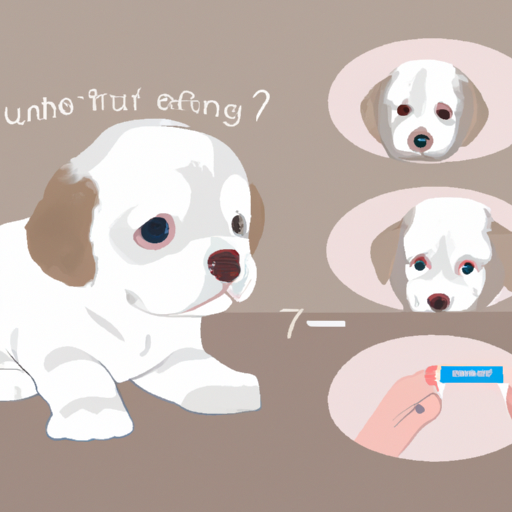As a caregiver of your beloved puppy, one of the milestones you’ll experience is the teething phase. This guide is designed to provide you with all the information you need to navigate this important stage.
H2 The Puppy Teething Timeline
Puppy teething is a process that occurs over several months, typically starting around 3 weeks of age and continuing until they’re 6 to 7 months old.
- 3 to 4 weeks: The first teeth, also known as deciduous or “baby” teeth, start to appear.
- 4 to 6 weeks: All 28 deciduous teeth have usually erupted.
- 12 to 16 weeks: Puppies start to lose their baby teeth, which are replaced by adult teeth.
- 6 to 7 months: Most puppies should have all of their 42 adult teeth.
Each puppy is unique and the timeline may vary slightly.
H2 Understanding the Teething Process
The teething process can be divided into two stages.
- Deciduous stage: This is when the puppy’s baby teeth come in. The teeth are small and sharp, designed to help the puppy learn how to eat solid food.
- Permanent stage: This is when the puppy’s adult teeth start to come in, pushing out the deciduous teeth. These teeth are larger and stronger, designed for a diet of adult dog food.
H2 Signs Your Puppy is Teething
Just like human babies, puppies can show signs of discomfort during the teething process. Here are some signs to look out for:
- Chewing on everything
- Increased drooling
- Bleeding gums
- Missing teeth
- Change in eating habits
H2 How to Help Your Teething Puppy
To help your puppy through this period, consider the following:
- Chew Toys: Provide a variety of chew toys. This will not only soothe their gums but also keep their attention away from your furniture.
- Cold Items: Items like frozen carrots can offer relief to sore gums.
- Puppy-safe Pain Relief: Consult with your vet about safe options.
- Regular Check-ups: Regular dental check-ups with your vet can ensure the process is going smoothly.
H2 What Not to Do
While it’s important to help your puppy through this stage, there are also things you should avoid:
- Don’t pull loose teeth: This can cause unnecessary pain and potential damage.
- Avoid hard toys: These can damage the new adult teeth.
- Don’t ignore excessive discomfort: If your puppy seems particularly uncomfortable, consult your vet.
H2 Dental Health Post-Teething
Once your puppy has all their adult teeth, it’s important to maintain good dental health. Regular brushing and dental chews can help keep your dog’s teeth and gums healthy.
| Dental Care Item | Purpose |
|---|---|
| Dog Toothpaste | Helps to clean the teeth and freshen breath |
| Dog Toothbrush | Removes plaque and tartar |
| Dental Chews | Helps to clean teeth and entertain your pup |
H2 Frequently Asked Questions
When should I start brushing my puppy’s teeth?
Start as soon as their adult teeth come in. This helps them get used to the process early on.
What should I do if my puppy swallowed a baby tooth?
Generally, it’s not a cause for concern as it should pass through their system. However, if you notice any changes in their behavior or bowel movements, consult your vet.
Are there specific foods to help with puppy teething?
Soft foods can help if your puppy’s gums are sore. However, hard kibble can also help keep their teeth clean.
Remember, understanding your puppy’s teething process is essential to ensure they grow up with a healthy and beautiful smile. Be patient, give them lots of love, and consult with your vet if you have any concerns.



